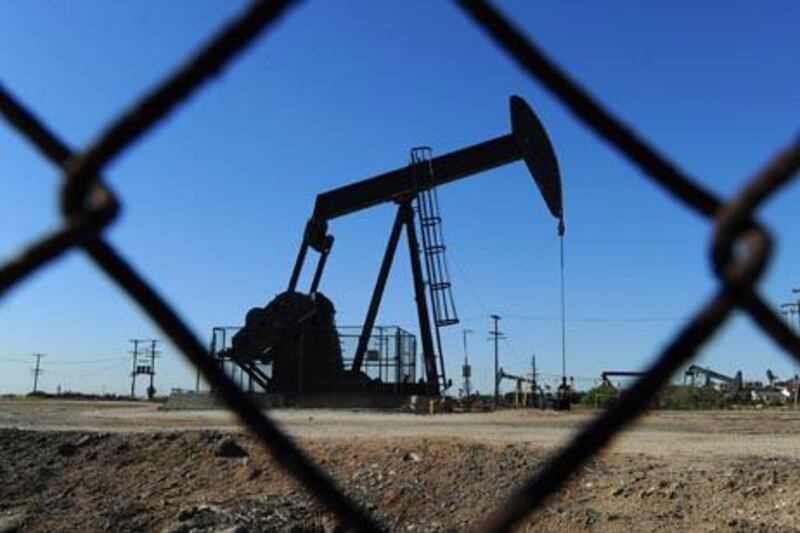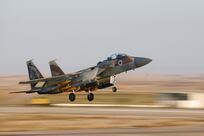Further sharp increases in the price of oil would be enough to push some advanced economies back into recession, says Nouriel Roubini, the economist who predicted the global financial downturn.
Unrest in the Middle East has contributed to driving up prices to post-global recession peaks.
Analysts are now asking whether prices could touch the record highs of 2008, shortly before the financial downturn sent them tumbling.
"If you had the oil price going up to where it was in the summer of 2008, at US$140 a barrel, at that point some of the advanced economies will start to double dip," Prof Roubini, of New York University, said yesterday in Dubai. In the faster-growing US, a surge to those levels could slow down expansion, he said.
Speculative flows from the West have helped to push up Brent crude oil prices to levels approaching $120 against a backdrop of persistent turmoil in the region. Prices of Brent dropped to $113.64 a barrel yesterday, however.
"Oil prices are unbalancing the world economy," said Tim Fox, the chief economist of Emirates NBD. "Speculative activity was partly responsible for the oil spike that led to prices crashing in 2008. Now, zero interest rates are again encouraging speculative funds into all kinds of asset classes."
For the Gulf, higher oil prices would appear to be a boon by helping to replenish government revenues. The increase prompted the IMF on Monday to marginally upgrade its economic forecast for the UAE this year to 3.3 per cent, from a previous outlook of 3.2 per cent.
Nevertheless, the IMF warned the situation was not all beneficial for the economy.
"If these prices are sustained for a long time they may start having an impact on the economic recovery because of the impact on global demand," said Taline Koranchelian, an IMF adviser.
European economies have been highlighted as among those most vulnerable to advancing oil prices. The UK, Ireland, Greece and Spain, in particular, remain fragile as they rebalance their economies from excessive debt levels.
As a signal of how delicate the European recovery remained, Prof Roubini said the European Central Bank (ECB) might be raising interest rates prematurely as many countries tried to regain competitiveness.
The ECB announced last week it was likely to raise rates as early as next month.
ghunter@thenational.ae
IMF sounds alarm, b6





